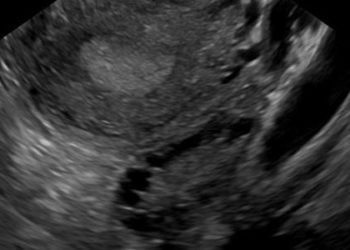Mental illness more prevalent among bariatric surgery patients
1. Nearly a fourth of bariatric surgery patients are diagnosed with a mental illness preoperatively. Depression, binge eating disorders and anxiety are the most prevalent.
2. While it is unclear that preoperative mental health influences future weight loss, there is moderate level evidence that the rates of depression are lower after surgery.
Evidence Rating Level: 1 (Excellent)
Study Rundown: There are certain physical health conditions, like obesity, congestive heart failure, cancer, and many others, that are commonly associated with higher rates of mental illness. It has been widely shown that adequate treatment of some of these diseases can have positive effects on mental health. Among those with severe obesity, bariatric surgery is becoming an increasingly common surgical option, but little is currently known about the pre- and post-operative prevalence of mental illness, or how the operation affects or is affected by mental illness.
This systematic review determined that the prevalence of any mental illness was greater among pre-operative bariatric surgery patients than in the general population, with a large proportion of depression and binge eating. However, there was conflicting evidence about whether preoperative mental health affected the degree of future weight loss. Conversely, moderate evidence suggested that bariatric surgery improved certain mental health disorders, with the greatest effects in depression.
Similar to other physical health conditions, the patients who are most sick from obesity–those sick enough to require bariatric surgery–are also the ones who are at the greatest risk of suffering from comorbid mental illnesses. While bariatric surgery has a clear effect on metabolic health, the results of this study suggest that it may also improve mental health. However, it remains unclear if the association is direct, potentially through a change in the microbiome or ‘gut-brain-axis,’ or whether the benefits are indirect, perhaps by providing a more positive self-image. Though providing clear estimates of the prevalence and effects of mental illness among patients seeking bariatric surgery, further studies are needed to determine the why certain interventions are more or less effective, and how best to treat mental illness in bariatric patients.
Click to read the study, published today in JAMA
Relevant Reading: Bariatric surgery: A systematic review and meta-analysis
In-Depth [systematic review]: This systematic review analyzed 68 articles to determine the prevalence of co-morbid mental health disorders among patients seeking bariatric surgery, and how rates of mental illness may change after surgery. For each endpoint analyzed, the evidence of the reviewed material was assessed using the Grading of Recommendations, Assessment, Development, and Evaluation (GRADE) guidelines. In all, 27 articles were used to determine the prevalence of mental illness, finding that 23% (CI95 15-31%) of bariatric surgery patients had a mental illness preoperatively. Of these patients, 19% (CI95 14-25%) were diagnosed with depression, 17% (CI95 13-21) with binge eating disorder, 12% (CI95 6-20%) with anxiety, and 9% (CI95 5-13%) with suicidal ideations. Though depression and binge eating were extensively studies, the evidence of mental health’s influence on postoperative weight loss was poor and inconsistent. Moderate level evidence did show that some mental illnesses appeared to improve after bariatric surgery. Notably, the prevalence of depression as well as the severity and frequency of associated symptoms were reduced postoperatively in many studies. For the most part, the prevalence of binge eating decreased in most articles, though one study showed its prevalence increasing over the follow-up period and returning to baseline rates. Mixed evidence existed for the postoperative status of substance abuse disorders, suicide, or self-harm. There was no clear evidence of bariatric surgery’s influence on bipolar disorder or PTSD.
Image: PD
©2016 2 Minute Medicine, Inc. All rights reserved. No works may be reproduced without expressed written consent from 2 Minute Medicine, Inc. Inquire about licensing here. No article should be construed as medical advice and is not intended as such by the authors or by 2 Minute Medicine, Inc.








